

New research has revealed that pet obesity is on the rise across the UK with 2.7 million pet owners being told that their pets are overweight in the last year. 1.7 million dogs were overweight and 1 million cats.
Obesity in dogs can lead to serious health issues, such as diabetes, joint disorders and cardiovascular problems, which could potentially shorten their lifespan by up to two years. Our Grain Free, Super Premium and Extra 65 recipes all contain a high level of quality protein, which is essential in a dog’s diet as it plays an important role in helping to maintain a healthy weight.
These pet foods are complete and balanced which means that they contain everything a dog needs to maintain their health and well being, and so it’s important to remember that added treats on top of this can lead to over feeding and weight gain, so their daily portions may need to be reduced slightly to account for this.
Exercise is also vital for helping to maintain a healthy weight and prevent serious health issues later in life. For dogs that struggle with weight gain, or those that are lower in activity such as senior dogs, our light recipes are a great option as these are 15% lower in fat than other standard products in the ranges. Using a light diet means that a dog’s bowl still looks just as full, however they consume fewer calories without the guilt of having to feed less.
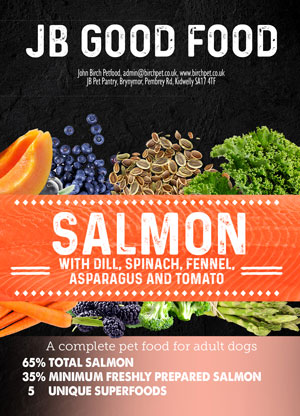 "From smoothies to salads, Superfoods are at the forefront of the human food chain trends of recent years. There is a drive for people to live healthier, for longer, and as such people are taking positive steps to boosting their health and well-being through the foods that they eat. And that translates through to what our pets are being fed.
"From smoothies to salads, Superfoods are at the forefront of the human food chain trends of recent years. There is a drive for people to live healthier, for longer, and as such people are taking positive steps to boosting their health and well-being through the foods that they eat. And that translates through to what our pets are being fed.
"So, if that's you, then here's Extra 65 for you, made using a unique Freshtrusion process, cooked gently to ensure maximum digestibility and retention of nutrients, containing a blend of 5 carefully selected superfoods, rich in collagen, pre-biotics and a min 65% total meat content."
Cat and dogs are different species and require food which is suited to their specific physiological and physical needs. The composition of the diet is very similar, but it is the moisture, protein, fat, fibre and ash level which can vary significantly between them. Cats are obligate carnivores; they cannot survive without a source of protein within their diet and have a higher requirement for:
- Protein
- Essential amino acids
- Fatty acids
- Certain vitamins.
For these reasons it is important not to feed dog food to cats, as dog food does not contain the levels of protein, essential amino acids, fatty acids, vitamins and minerals which cats require to support everyday health and well-being.
Physiology
Dogs and cats have evolved differently and have species specific nutritional requirements. The Dog is an omnivore which can adapt to having both protein and plant sources of energy. Dogs possess molars for helping to crush plant matter. The cat does not possess these teeth so you will find little plant matter within a feline diet. Cats have prominent incisors designed to tear their food and have fewer taste buds than dogs. The cat has a smaller intestine with a shorter transit so meat is very rapidly digested and utilised within the body. Cats are unable to cope with high levels of carbohydrates and will not survive without a supply of essential amino acids from the protein within their diet.
(written by Katie Bracewell)
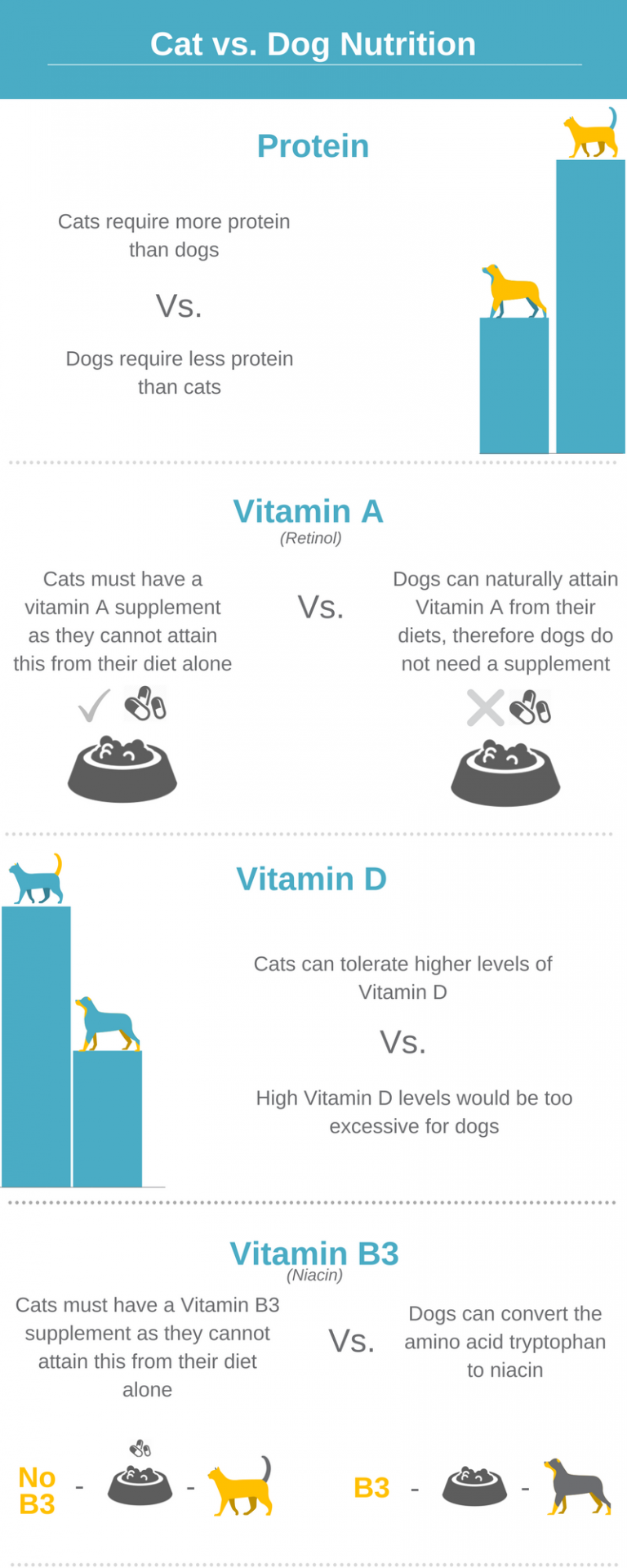
Pet food ingredients can influence the gut health of dogs. Our Grain Free recipes have been formulated with ingredients to help support gut health and promote healthy digestion.
1) Hypoallergenic:
Hypoallergenic diets are a great option for dogs with more sensitive digestion, as they can be used to help eliminate common allergens from the diet. Our Grain Free range is hypoallergenic as the recipes have been formulated without grains (such as wheat, maize & barley), soya and dairy. We also have a large number of single protein recipes available to help eliminate specific proteins from the diet when necessary.
2) Prebiotics:
Prebiotics are classed as non-digestible ingredients that probiotics (the good bacteria in the gut) can feed off. These help to increase the populations of healthy bacteria in the gut to help support good digestion. This is why our Grain Free recipes are formulated with Prebiotics MOS (Mannanoligosaccharides) and FOS (Fructooligopsaccharides). One of the biggest advantages of prebiotics is that they are highly stable as they are unaffected by either temperature or long-term storage, so they are very beneficial as an ingredient in dry pet foods.
3) Fibre:
It’s thought that consumption of fibre can help to reduce symptoms in some dogs with gastrointestinal upset and support good gut health. Our Grain Free recipes are formulated with beet pulp which is a great source of soluble and insoluble fibre. Insoluble fibre helps to encourage good stool formation and promote normal gastrointestinal movement so that an optimal level of nutrients can be absorbed from the food. The soluble fibre also acts as a prebiotic food source for the ‘good’ bacteria in the gut to maintain normal digestive function.
4) Freshly Prepared Ingredients:
Our manufacturers have developed Freshtrusion™ technology which allows them to include Freshly Prepared meats in our recipes. These meats are of a high quality, are easily digestible and gentle on the gastrointestinal tract making them beneficial ingredients for those dogs with more sensitive digestion. High digestibility of these ingredients is also advantageous as it means that a high proportion of nutrients are available for absorption by the dog.
According to the Pet Food Manufacturers Association (PFMA) there are 9 million dogs and 8 million cats in the UK. A recent study by OnBuy.com using the data by the PFMA looked into the percentage of cats and dogs owned as pets per region.
Highest percentage of dogs:
The region with the highest percentage of homes with dogs is Northern Ireland with a total of 35%, the North East of England is second housing 33% and the East Midlands accounting for 31% of the dog population in the UK.
Lowest percentage of dogs:
Looking at the other end of the scale, London accounted for the lowest percentage of households owning a dog, with just 9%. Although, this may not come as a surprise due to the city having limited interior space and less green areas compared to other regions in the country.
Highest percentage of cats:
In comparison, the highest region with the number of cats is in Wales and the South West England with both taking 22% respectively. Closely followed by the South East of England and East Midlands, with 20% each being open cat lovers.
Lowest percentage of cats:
Scotland, the North East of England and London had the lowest percentage of cats with a total of 14%. In particular it is noticeable that London quite clearly prefers cats over dogs as there is a 5% difference between the amount of cats compared with dogs in the city.
Dogs come in many shapes and sizes. Large Breed and Giant Breed Dogs are two of the sizes that are seen by owners as being similar. But what are the differences between these two breeds of dog?
If a dog falls between 25kg to 44kg, he or she falls within the Large Breed category. This type of dog experiences a longer growth period reaching adult weight at 15 months. This type of dog usually have slower metabolism and high exercise requirements. Their diets should take into consideration the need for bone and joint health as they can be prone to joint concerns.
If a dog weighs over 45kg, then they are classified as a Giant Breed Dog. Giant breeds go through a two- step growth phrase. The first six months see rapid growth which includes bone development and a diet that is high in energy and nutrients, as well as easy to digest. After this muscular development takes place in which special attention is needed to be given to their bone and joint health. Giant Breed dogs usually attain adult- size at 18 to 24 months.
Puppies should be gradually weaned off their mother’s milk and onto a puppy food at around 9-12 weeks of age. The puppy diet is then suitable for a puppy for approximately one year – this time frame can vary with the size of the dog and breed, as small breeds reach maturity more quickly (around 6-9 months) whereas large and giant breeds mature more slowly around 2 years.
According to Euromonitor 2018 a rise in pet obesity saw many pet owners searching the shelves to find functional foods which are specific for weight management. Within the Super Premium, Naturals and Grain Free ranges “light” products have been specifically formulated with added ingredients to help with managing a pet’s weight. The light recipes are 15% lower in fat compared to standard adult products in order to aid weight reduction. As it is the calories which are reduced, this does not mean that a pet has to eat less, they can still consume a normal amount of their food (as per the feeding guide). However, it’s also very important to take in to account any extras (treats) that pets may be given and adjust the daily amount of food given accordingly. For effective weight loss diets and exercise go hand. in hand!
Our Light recipes have added L-Carnitine – an amino acid which promotes lean muscle development. L-Carnitine promotes the conversion of fat to muscle for lean muscle development. This works by transporting fatty acids into the mitochondria within cells where they can be “burned up” and used as fuel. L-Carnitine has other added benefits which include helping to enhance brain function, reducing muscle damage and regulating blood sugar levels.
The recipes which are specifically for weigh control include:
Grain Free Light Trout with Salmon, Sweet Potato & Asparagus
Grain Free Light Turkey, Sweet Potato & Cranberry
Super Premium Light
Naturals Turkey Light
Fats come in all shapes and sizes and have a whole host of functions within the body. The most common form of dietary fats are triglycerides which are the body's primary form of stored energy. Fat is found deposited in various locations in the pet's body, surrounding vital organs, under the skin and surrounding the intestines. These deposits have extensive nerve and blood supply which is essential to be able to provide energy when required and store energy when intake is surplus.
Not only do fats provide energy, but they also have metabolic and structural functions, serving as insulators against heat loss and as a protective layer for the vital organs. When it comes to carbohydrates as an energy source, animals have limited capacity to store energy in this form. They do however, have a limitless capacity to store that extra intake of energy in the form of fat.
Dietary fat provides the pet's body with the most concentrated form of energy, and out of all the nutrients they intake alongside this, the digestibility of fat is typically higher than that of proteins and carbohydrates. Dietary fat also provides pets with sources of EFAs (essential fatty acids), and these nutrients are essential as the body has a physiological requirement for them. The body requires two distinct types of EFAs, Omega 3 and Omega 6 for normal physiological functioning of the body, cells and cell structure.
Fat within pet food also contributes significantly to the palatability and texture of the kibble, and we ensure that your recipes are formulated to meet the individual needs of pets and are perfectly balanced with moderate fat levels that are still highly palatable! When it comes to senior and light diets, they are formulated to have at least 15% less fat content than the average product.
'Freshly Prepared' is a term used to describe the human grade quality raw and fresh meats used in many of our dry complete pet food recipes. The term refers to a unique cooking technology trademarked as “Freshtrusion” is used to cook the meats at a low temperature and low pressure.
This unique cooking process means that there is a higher nutrient bio-availability when fed to pets, with a more natural aroma and taste for an enjoyable, healthy and nutritious meal time. The Freshly Prepared ingredients have other fantastic advantages including digestibility levels above 90% which is a better experience for both pet and owner!
Puppies need to be socialised when they are young because of the way a puppy’s brain develops. Between the age of 3 and 8 weeks, a puppy wants to explore and investigate everything that’s new. But after about 8 weeks, the brain changes and instead of wanting to investigate new things your puppy is more likely to be nervous of them and back away. Exposure to a range of people and animals and different places and experiences is therefore crucial before 8 weeks of age.
The earlier you start socialisation, the better. In fact, socialisation really starts at the place where your puppy was born so you should get a puppy from a place where it has been amongst normal everyday sights and sounds, like the vacuum cleaner, TV, hi-fi and washing machine. After 8 weeks socialisation is still important and the brain is still developing. At this age puppies will be naturally wary of new people and situations so the way in which you handle their encounters is very important to make sure they stay relaxed and unafraid.
Puppies need to be socialised when they are young because of the way a puppy’s brain develops. Between the age of 3 and 8 weeks, a puppy wants to explore and investigate everything that’s new. But after about 8 weeks, the brain changes and instead of wanting to investigate new things your puppy is more likely to be nervous of them and back away. Exposure to a range of people and animals and different places and experiences is therefore crucial before 8 weeks of age.
The earlier you start socialisation, the better. In fact, socialisation really starts at the place where your puppy was born so you should get a puppy from a place where it has been amongst normal everyday sights and sounds, like the vacuum cleaner, TV, hi-fi and washing machine. After 8 weeks socialisation is still important and the brain is still developing. At this age puppies will be naturally wary of new people and situations so the way in which you handle their encounters is very important to make sure they stay relaxed and unafraid.
The BBC report that here may be more captive tigers in the US than wild ones in the rest of the world. But in states like Texas that bristle at government interference, no-one really knows how many are being kept as pets.
Many of America's tigers could be in people's backyards as pets, and often aren't registered, especially in states like Texas. No-one really knows just how many tigers there are out there.
Read the whole article and see pictures of those cuddly pet tigers at the BBC website
Dogs Trust (formerly the NCDL) is the UK’s largest dog welfare charity and cares for over 15,000 dogs each year through its network of 20 rehoming centres in the UK - and one in Dublin. They've been around for 126 years and can be trusted to have the best interests of pet and owner at the heart of what they do.
As this is being written they have 900 dogs looking to be rehomed. How does the process work?
Well, according to their website every adoption is treated as an individual case, so while the process normally takes about a week, it can be shorter or longer depending on a number of factors, and this should not be taken as a guarantee.
Centre staff will do their best to find a dog whose needs suit your circumstances from the start, so many people agree a match with centre staff on the first visit and are able to take home the dog soon afterwards (pending a home check). Some might need to visit a centre more times to find a suitable dog, and occasionally dogs might need to get to know their new owners more gradually, over several visits.
If you want more information or to find your nearest DogsTrust Home then visit their website
Buddhists believe that as part of the samsara life and death cycle, dogs and cats can potentially be reincarnated as humans. By giving their pets full funeral rites – including prayers for forgiveness, a blessing by a monk, filling the coffin with (fake) gold and “tickets to the next life”followed by full cremation – many owners hope to give them a better chance of returning to this world in a higher form.
Theerawat Saehan seems to have developed quite a thriving business organising lavish funerals for owners beloved pets. He asked the Wat Krathum Suea Pla temple if he could arrange a proper Buddhist ceremony with the monks, and they agreed.
Read more about this and see the pictures from the Guardian article
Veterinarians are used to seeing dogs with skin problems of all kinds, in some practices it can be up to 25% of all the patients that the see daily. And these problems come in several categories
Itchy Skin - or puritus, which is a miserable condition both for dog and owner, the pet scratching constantly, leading often to infection and hair loss
Allergies - which are often tricky to identify, as they might be caused by flea bites, allergens in the environment (just like humans with hay fever), food allergies (much less common)
Sores and Hot Spots - If you see red sores on your dog then ask the veterarian for an opinion as these can spread quickly
Hair loss - which is difficult to diagnose without veterinarian advice, and could indicate an underlying health problem.
It is important, if your dog is showing even mild symptoms to take a look at what you are feeding, to eliminate common pet food ingredients which are known to cause problems with sensitive dogs. Take a look at the ingredient label and see if it includes wheat, soya, or artificial colors and flavors.
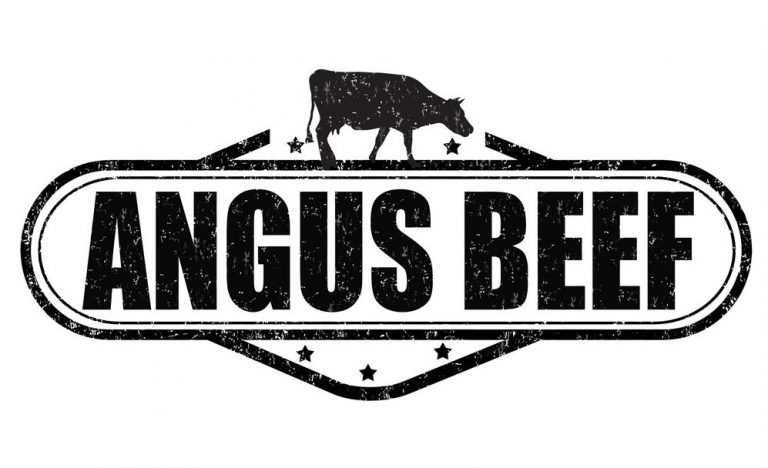
There has been, in the recent past, a move against the use of beef in dog foods at the premium end of the market, as some dogs were showing signs of dietary intolerance to that particular source of protein.
However, just like many humans have allergies to milk or peanuts, we are all individuals as are our pets. A dog who has an allergy to chicken may not have an allergy to Beef and this can be applied to all protein sources. Your Angus Beef Grain Free recipe has many benefits as the recipe is hypo-sensitive meaning that it is not formulated with wheat, wheat gluten, soya or dairy.
The recipe also comes with added Omega 3 Supplement – an excellent source of EPA and DHA to support cognitive function, visual development and help to reduce the inflammation response.
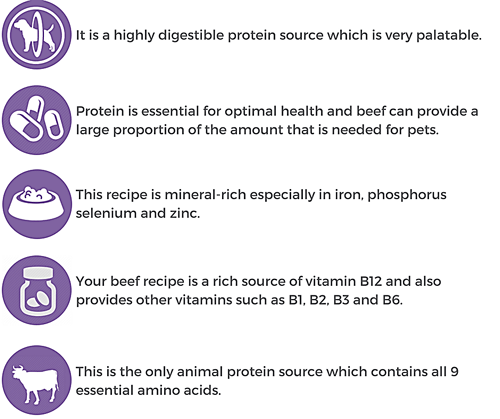
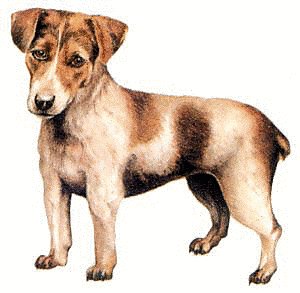
According to Euromonitor there has been an increase in the popularity of small breed pets due to many factors such as urbanisation and a decreasing ownership of households.
When it comes to the cost of owning a pet, many people in the UK are finding that they simply do not have enough money to accommodate a pet’s needs. Modern economic pressures mean that fewer households now own a pet in, fact just 56% down from 63% five years ago.
Because many people cannot afford to buy their own home, more are renting from landlords who only allow small pets or either does not allow animals at all. In 2012 small dogs (up to 20lbs/9kg) accounted for a 48% share of total dogs in the UK and were expected to reach a 55% share in 2017.
According to recent sources the UK population is living in more compact homes than ever before. Experts believe that due to a combination of stagnating wages and small houses, often without gardens this has led owner’s increasingly selecting smaller breeds of dogs. A small dog needs about one-quarter of the daily calories of a larger dog, so they are far cheaper to own.
Vets’ bills also tend to be less for smaller animals. Some small breeds (but not all) require less exercise, which is also a factor as people work longer hours and have more commitments. Household size and ownership is expected to continue recording a downwards trend which is set to favour these trends and small dogs are expected to account for a 59% share of the total dog population in 2022.
We have a range of foods for small breed adults, available in 6kg bags carriage free to most UK mainland addresses.
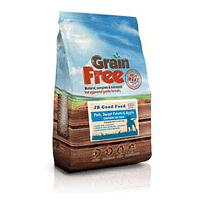
You may be surprised to learn that food intolerance’s are a common problem amongst pets. Lower quality pet food, packed with artificial additives, chemicals and known hypersensitising ingredients.
The pet food recipes that we sell have been formulated to be 'hypoallergenic' in the sense that they help to reduce symptoms of intolerance and sensitivity, promoting everyday health and wellbeing as recommended by the Pet Food Manufacturers Association (PFMA).
Our pet food recipes are often formulated to exclude ingredients which may cause intolerance’s including grains (i.e wheat and maize), beef, chicken, soya, or dairy. Foods classed as hypoallergenic are formulated to assist with food intolerances/sensitivities as opposed to specific allergic reactions and are not classed an anallergenic pet food.
Like humans, pets health can go out of control when exposed to certain food or chemicals. Food sensitivities are whereby the animal is intolerant (sensitive) to one or more of these materials. The body reacts to this unwanted material and there is belief that this causes upset to the animal by including the following gastrointestinal signs: flatulence, diarrhoea, regurgitation or even vomiting, and unwanted variation with wet or voluminous stool quality. Itching and poor skin may also be associated with adverse food reactions.
it is essential to introduce the new food gradually over a period of time (usually 2-3 weeks). It takes time for the digestive enzymes and microflora to adjust. Too much disruption through changing too quickly could be counter-productive, or, at worst, cause an adverse reaction. They can do this by gradually reducing the amount old food and slowly introducing the new food to the diet. Do not anticipate the effects to be instantaneous – the effect of this diet is gradual!
Hypoallergenic foods are really about reducing the risk of adverse reactions to particular ingredients or components of those ingredients. By offering Hypoallergenic foods such as Grain Free with particular and limited ingredients, your pet hopefully has a reduced risk of food related illness and all the potential to lead a happy healthy life!
So, rest assured that all our recipes are 'hypoallergenic' and the choice for you is whether to go for the more traditional rice-based food, or the increasingly popuar grain free option. Remember that our VAT free Working breed range has many of these, with the advantage of being cheaper/kg

Sweet Potatoes are in our Grain Free recipes - but what benefits do they give to the diet of your dog?
- It’s Superfood! Packed with a wide range of vitamins and minerals and naturally gluten free.
- Great for digestion as sweet potatoes are high in fibre which helps to promote a healthy digestive system and good stool; formation. They are also soothing on the stomach so are great for more sensitive animals.
- They have a low glycemic index which means that they release glucose more slowly into the blood stream unlike other starchy foods which release this more quickly once consumed. This means blood sugar levels remain more constant and provide a steady release of energy throughout the day to the animal
- They are one of the best sources of Vitamin A which is an antioxidant powerhouse and is thought to have anti-aging properties along with helping to maintain good eye sight and aid skin and coat condition.
- Thought to have anti-inflammatory and immune boosting properties as they are rich in beta-carotene, an antioxidant, along with other vitamins and minerals such as Vitamin C, Vitamin B complex, Iron, Phosphorus and Magnesium.
- As sweet potatoes contain a lot of magnesium, it’s thought that this can help with stress and promote calmness, relaxation and good mood.
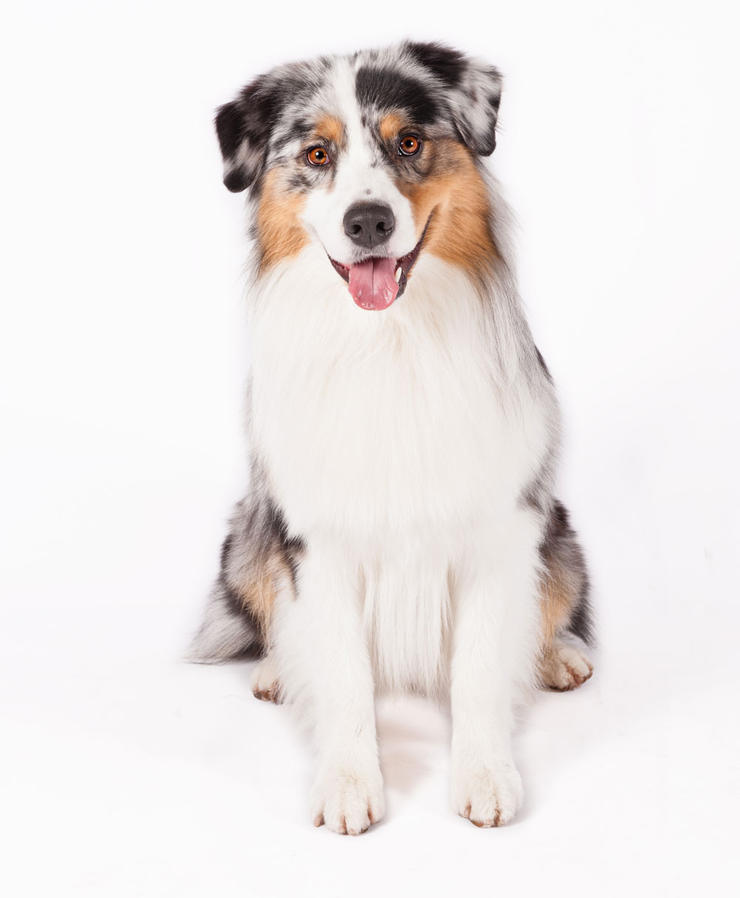
Many things can cause a dog to have digestive trouble, including sensitivities to ingredients in the diet. The most common ingredients to cause intolerances are wheat, soya and dairy, so feeding a diet avoiding these ingredients would be recommended.
Although our dog and cat ranges do not currently include any specific veterinary diets, we advise that the Grain Free or Naturals ranges would be the most suitable, dependent on other preferences. The Grain Free Salmon, Trout, Sweet Potato and Asparagus diet would be recommended as this is a grain free product and will remove any problems through any sensitivity to wheat or grains.
Another benefit of the recipe is the fact that it is fish based and therefore provides Omega 3 oils which have anti-inflammatory properties.
Super Premium Duck & Potato is also recommended, as it is also grain free, and formulated with a single protein source. Duck is a novel protein source that dogs are less likely to have been exposed to in the past, therefore are less likely to be intolerant to it.
The Naturals range are all formulated with a single protein source and rice as the main carbohydrate source therefore designed to make them gentle on digestion.

Senior & Light recipes are designed to be suitable for those dogs over 7 years old and those who have excess weight. We have Senior/Light diets within the Premium, Naturals and Grain Free ranges.
A senior diet is designed to:
- Help support the joints
- Have a higher fibre content in order to help “keep things moving”
- Reduced energy content in order to help prevent weight gain in those golden years
Using the same recipe as a Light Diet….
- May help those pets who have a decreased activity level
- May help those pets who require a reduced calorific diet in order to help promote weight loss or help prevent further weight gain, providing all of the essential and carefully balanced nutrition they require to support everyday health and well-being.